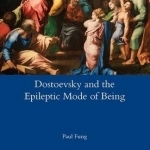Dostoevsky and the Epileptic Mode of Being
BookThis item doesn’t have any media yet
2014 | Essays
For Fyodor Dostoevsky (1821-81), who lived with epileptic seizures for more than thirty years, illness is an ineradicable part of existence. Epilepsy in his writings denotes both a set of physical symptoms and a state of survival in which the protagonists incessantly try to articulate, theorize, or master what is ungraspable in their everyday experience. Their attempts to deal with what they cannot control or comprehend results in disappointment, or what Dostoevsky called a mystical terror. Dostoevsky's heroes are unable fully to understand this state, and their existence becomes 'epileptic' in so far as self-knowledge and self-coincidence are never achieved. Fung explores new critical pathways by reexamining five of Dostoevsky's post-Siberian novels. Drawing on insights from writers including Benjamin, Blanchot, Freud, Lacan and Nietzsche, the book takes epilepsy as a trope for discussing the unspeakable moments in the texts, and is intended for students and scholars who are interested in the subject of modernity, critique of the visual, and dialogues between philosophy and literature. Paul Fung is Assistant Professor in English at Hang Seng Management College, Hong Kong.
Related Items:
| Published by | Maney Publishing |
| Edition | Unknown |
| ISBN | 9781909662087 |
| Language | N/A |
Images And Data Courtesy Of: Maney Publishing.
This content (including text, images, videos and other media) is published and used in accordance
with Fair Use.
